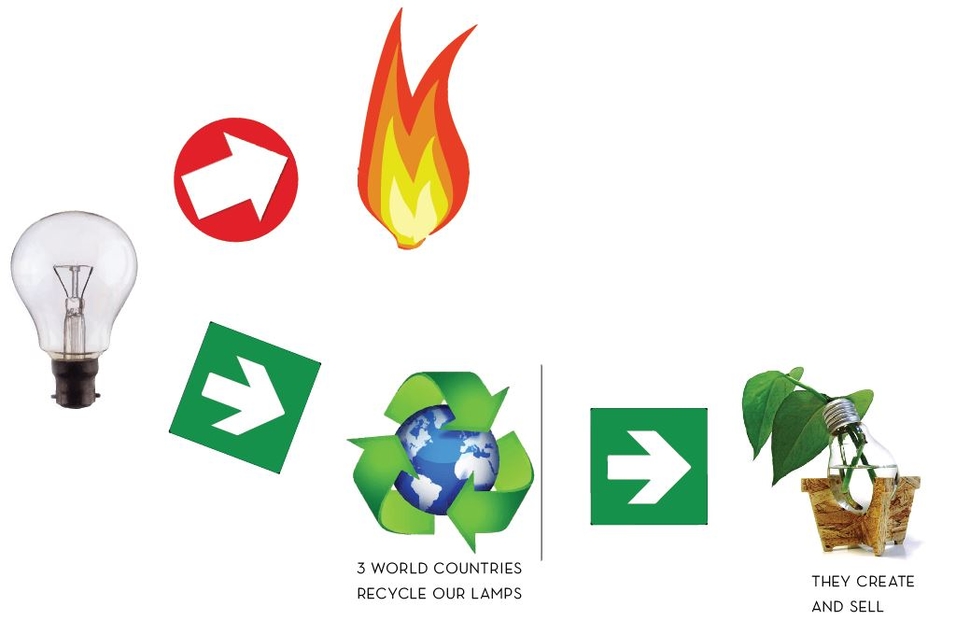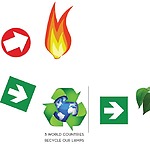We throw things away like it’s nothing. We all recognize we throw food away when we are full. Can you even imagine that every year, consumers in industrialized countries waste 220 million tons a year, while the net food production of the sub-Saharan Africa is 230 million tons (UNEP, 2015)? This happens not only with our food, the same happens with materials. Doesn’t it sounds like a good idea to re-use our waste?
We are so spoiled, while we don’t even notice. We are used to the more luxury and expensive our things are, the better. Can you imagine people who have barely enough money to eat? Who can be helped with a little ieniminimo bit of technology? Some of us are already helping by donating our clothes to third world countries.

Producing things, third world countries can adapt, must be cheap. A lot of industries in industrialized countries solve this in their own ‘rich’ countries by using childlabour which can produce things really cheap. It is so nice to have your clothes cheap, especially when you don’t have the money to buy more expensive clothes. But the children who produce those stuff get a little bit or sometimes no money out of this. If huge companies like C&A and Primark (Volkskrant, 2012) continue with this, the gap between rich and poor will stay big.
So why not start a Frugal organization in e.g. South-Africa? Help poor people setting up a company which reuses donated old stuff from industrialized countries? Those people can start their own business without needing help from our countries. We are only sending our old stuff to them and then they can produce new stuff out of it themselves. This stuff will be burned in our country anyway. Then they can sell their stuff to their people. Let’s help them with rolling the ball. As long they keep the ball rolling, we don’t have to pay attention anymore.
But why using only Frugal innovations for people at the Bottom-of-the-Pyramid? In industrialized countries there will always be people who can’t afford expensive stores and will always go to stores like Primark. And then, childlabour will exist forever and we will NEVER innovate responsible. This is why we must re-think this kind of selling chains or services. Primark could try to produce their products as cheap, or rather cheaper as childlabour to stimulate them, so they can sell it cheap but still have profit. They can do this by re-using waste. This way Primark can also get a good name, which will stimulate customers to buy their products. If I was the boss of the Primark, I would sleep much better earning money this way..
We’re all human, we must care for each other. This is why we must stand up for innovation in a responsible way. Not only for us, but for everyone!
Sources
UNEP. (2015) Food Waste: The Facts. Consulted at the 4th of October 2015, Retrieved from http://www.worldfooddayusa.org/food_waste_the_facts
Volkskrant. (2012) Kinderarbeid in bedrijf dat levert aan C&A en Primark. Consulted at the 4th of October 2015, Retrieved from http://www.volkskrant.nl/economie/kinderarbeid-in-bedrijf-dat-levert-aan-cena-en-primark~a3246038/.


